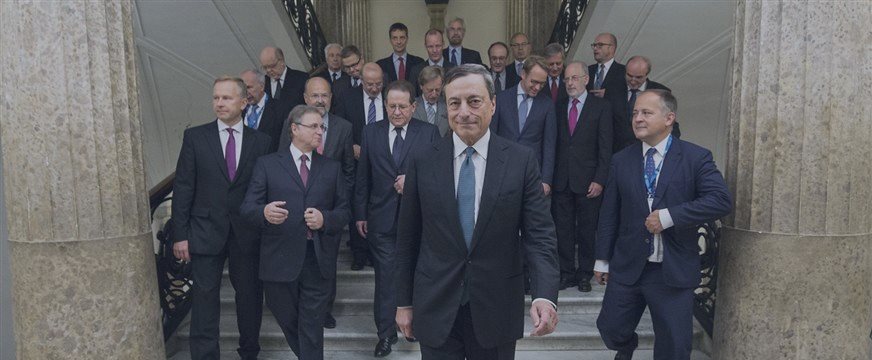
ECB President Mario Draghi reiterated in his recent speeches
the lender was judging the necessity for more monetary stimulus and was prepared for a movement at its December meeting. It would have been better if Mario acted two weeks ago, though, David Shipley of Bloomberg View writes.
The case for further stimulus in December is strong. Every little bit of interest-rate and currency
easing helps, and Draghi had better have acted earlier, Shipley says.
If the U.S. economic rebound is cool, Europe's is cold. The International Monetary Fund expects
output in the euro area to expand by just 1.5% in 2015 and 1.6% in 2016.
While unemployment in the euro area is over 10%, inflation is persistently below the ECB's target of nearly 2%.
The Quantitative Easing is on. The ECB has been buying 60 billion euros worth of assets each month, and Shipley notices signs that it has helped. But expectations of inflation remain too low, and Draghi said he was worried about new downside risks in the outlook.
However, the central bank is not out of ammunition:
1) The
ECB can extend the time frame for its current QE. The purchases are
currently promised to run until at least September next year, and it can
increase the amounts. It will be fine if the range of assets it proposes to buy is expanded.
2) The lender can reduce the
interest it pays on reserves, making the rate slightly more negative.
The opinion that there are no stimulating tools left in Draghi's arsenal is wrong.
Draghi said that some members of the bank's policy-making council had called on acting immediately rather than waiting, and many analysts regret it did not happen. During the crisis and in its aftermath, the central bank has been slow to move, always being too cautious. As deflationary pressures had existed long before the QE was launched, the risks arising from too much stimulus today are lower than the risks of doing too little.
Monetary policy can and should be doing much more, but that would require a degree of policy cooperation that the European Union is fighting to reach.
The ECB has
underperformed, but by a significantly smaller margin than European authorities
have. So far, fiscal policy is Europe's only weapon against
deflation, and it needs to be used in full.


